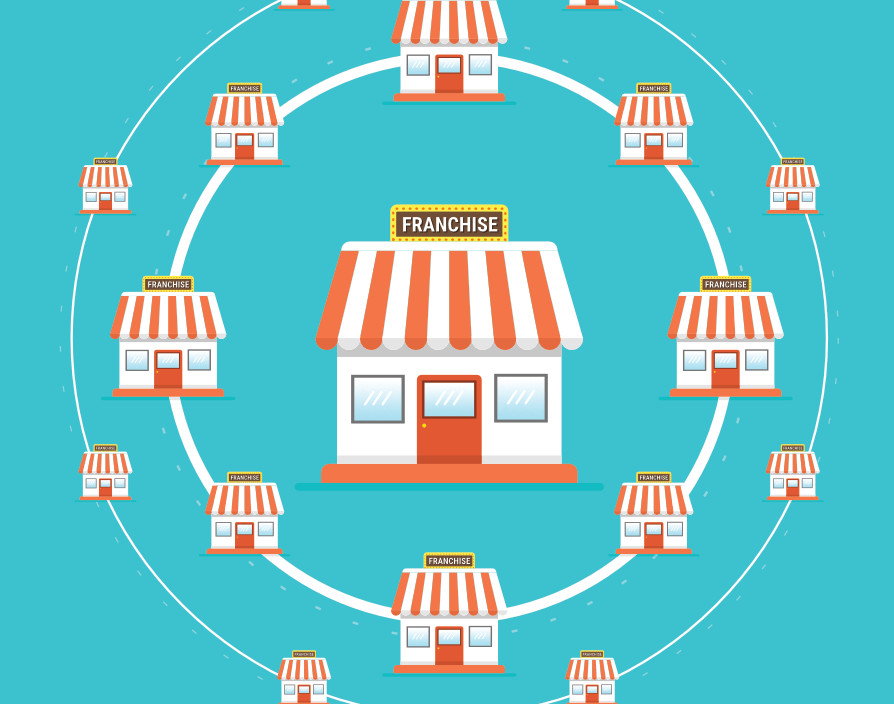Nigel Toplis, managing director of the Bardon Group, takes a detailed look at the world of franchising.
Franchising is neither an industry, nor a business. It is a crazy mixture of conformity and individuality, combining the best elements of large corporates and businesses. It is also a consistently successful method for distributing products and services to the marketplace.
A successful franchisee will comply with the franchise system. And it’s this compliance which enables the franchisee to achieve a greater level of individual fulfilment. It’s about using the system, processes and structure to achieve greater individual freedom and ultimately business success. A survey published jointly by the NatWest and British Franchise Association, in May 2018, highlighted the following stats:
Franchising: Has a market turnover in excess of £17bn; Employs more people (710,000) than the combined British armed forces; And has over 900 active franchise systems. French statesman and military leader Napoleon Bonaparte described Britain as ‘a nation of shopkeepers’ and it is certainly in our DNA to want to run our own businesses. In recent years this latent desire has become more evident and this appetite goes right across culture, race, age and social background.
How do you become a franchisee?
There is no template for being a successful franchisee. But here are nine points to help you on your way:
- Work closely with your franchisor
- Follow the system
- Challenge the franchisor to constantly improve
- Market, market, market
- Constantly communicate with your customers
- Get a good accountant to manage your cash flow
- Network, network, network.
- Shout about your successes/innovations (make use of PR)
- Have fun.
A franchisor will always be on hand to provide knowledge and expertise on key areas of the business.
What does franchising offer?
Some have referred to the relationship between a franchisor and franchisee as a ‘marriage’.
Support
Due to the breadth and scale of this support, franchisees often come from a wide range of backgrounds and experience. Running a franchise is conducive to a variety of transferable skills, including project management, marketing, operations and sales. Don’t forget that the franchisor is there to help, if you’re lacking in a particular skill.
Opportunity
Franchisees can often choose where their franchise is based and many can be run from home. This means more time to spend with the family and no daily commute. This is a huge benefit for many franchisees, especially parents. Franchising is also ideal for people who have lots to offer, but would struggle with nine-to-five employment, such as single parents or people with disabilities.
For young people, franchising is an excellent way to launch their careers. Franchisee Alex Newman was in his twenties when he took the plunge. Alex said: “Buying a Recognition Express franchise in Coventry has given me a unique opportunity to become a business owner at such a young age. The market potential is massive, our product range extensive and the range of companies we access is huge.”
Rationale
There is a good quote from the book ‘Growing Pains‘ that accurately differentiates between running your own ‘independent’ business and being a franchisee. It states: “Running your own business is about as easy as navigating unchartered waters in a leaking rowing boat, with an inexperienced crew while surrounded by a school of sharks. The crew might be glad to know that others before them have made the voyage successfully and to hear (and learn) of the lessons that other voyagers learned in the process.”
Franchising is very much a two-way street where the franchisor can achieve faster expansion of his operation, make more money and gain a higher return on his capital. For this, the franchisee gets a proven business system which includes marketing, goodwill, training, support and trademarks. It points them in the right direction towards becoming a successful businessperson.
Selecting the best franchise opportunity
You need to ask yourself some key questions when considering a franchise option.
• Why do I want to run a business?
This could be personal ambition, or getting just reward for effort, perhaps attaining greater job security, and maybe to learn new skills. You may also want to build a capital asset or to work with the family.
• What am I good at?
Sit down and evaluate your strengths and weaknesses, your likes and dislikes. You should look upon a franchise as a long-term tenure, and more of a vocation than a job.
• What sort of person am I?
It will help if you are positive, outgoing and energetic. Maybe you like problem solving and see yourself both as a self-starter and team player.
• What can I afford?
Be sure you can afford the initial fee and have enough money to live off while undergoing training. You will also need spare capital while you build up your business during the first few months of trading. If you think the venture is going to cost £100,000, and you’ve only raised £80,000, think very hard about your next move.
Once you’ve identified a business of interest, such as one that taps into your skills and experience, and one which you can afford, then the next step is to find the right franchisor.
Ten questions you should ask about the franchisor
• Do they have a solid trading history?
• Are they financially sound?
• Do they have a history of success?
• Is there a genuine Head Office support structure?
• What do they provide by way of support?
• If the franchisor supplies products, what are the ‘Terms and Conditions’?
• What is their position in the market?
• Are projected cash flows realistic? Can they prove so?
• Does the company have a finance facility with the banks?
• How tough is their interview process?
Finally, ask if you can speak to existing franchisees to get their perspective on the business.
Final pieces of the jigsaw
You have done all the research. You’ve selected the industry, the sector and the franchisor. Now, all you need is the funding! Prepare a ‘Business Plan’ with the help of a good accountant – if you can find one. The accountant will help detail how much money you need and how you propose to pay it back. Then approach the bank. Because you have received training, and are receiving on-going support, while using a proven business model, it means you are in business for yourself but never by yourself.



































